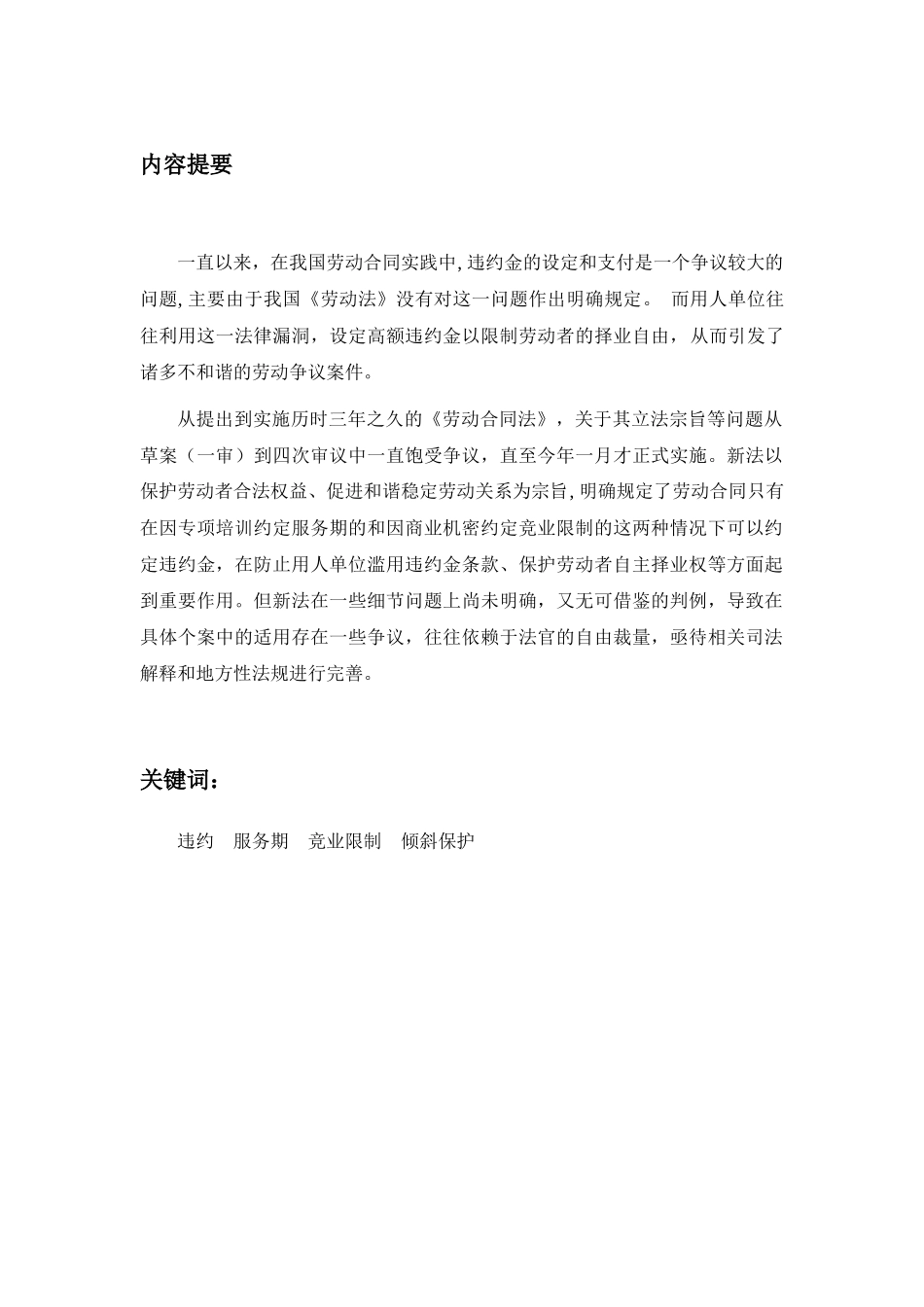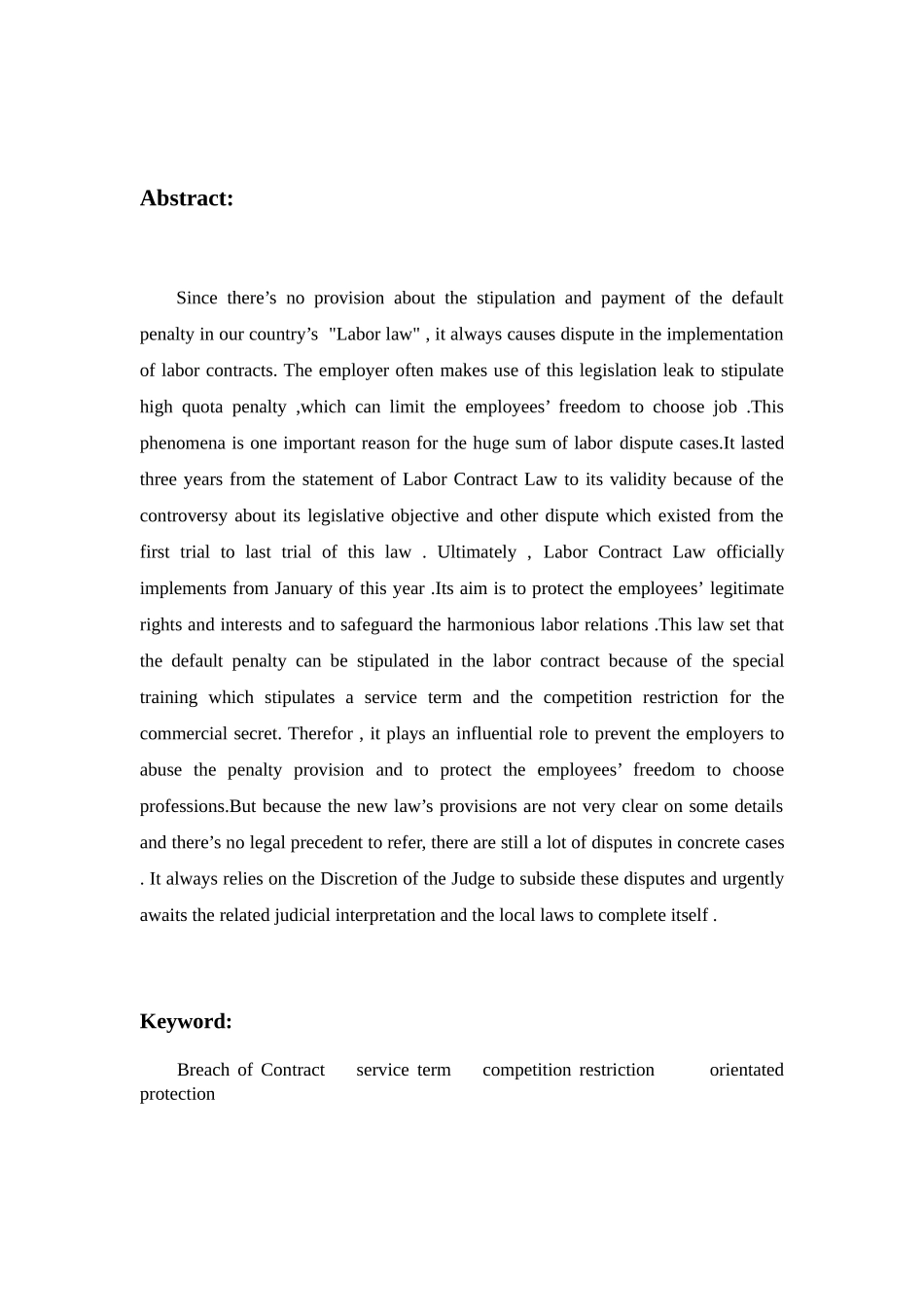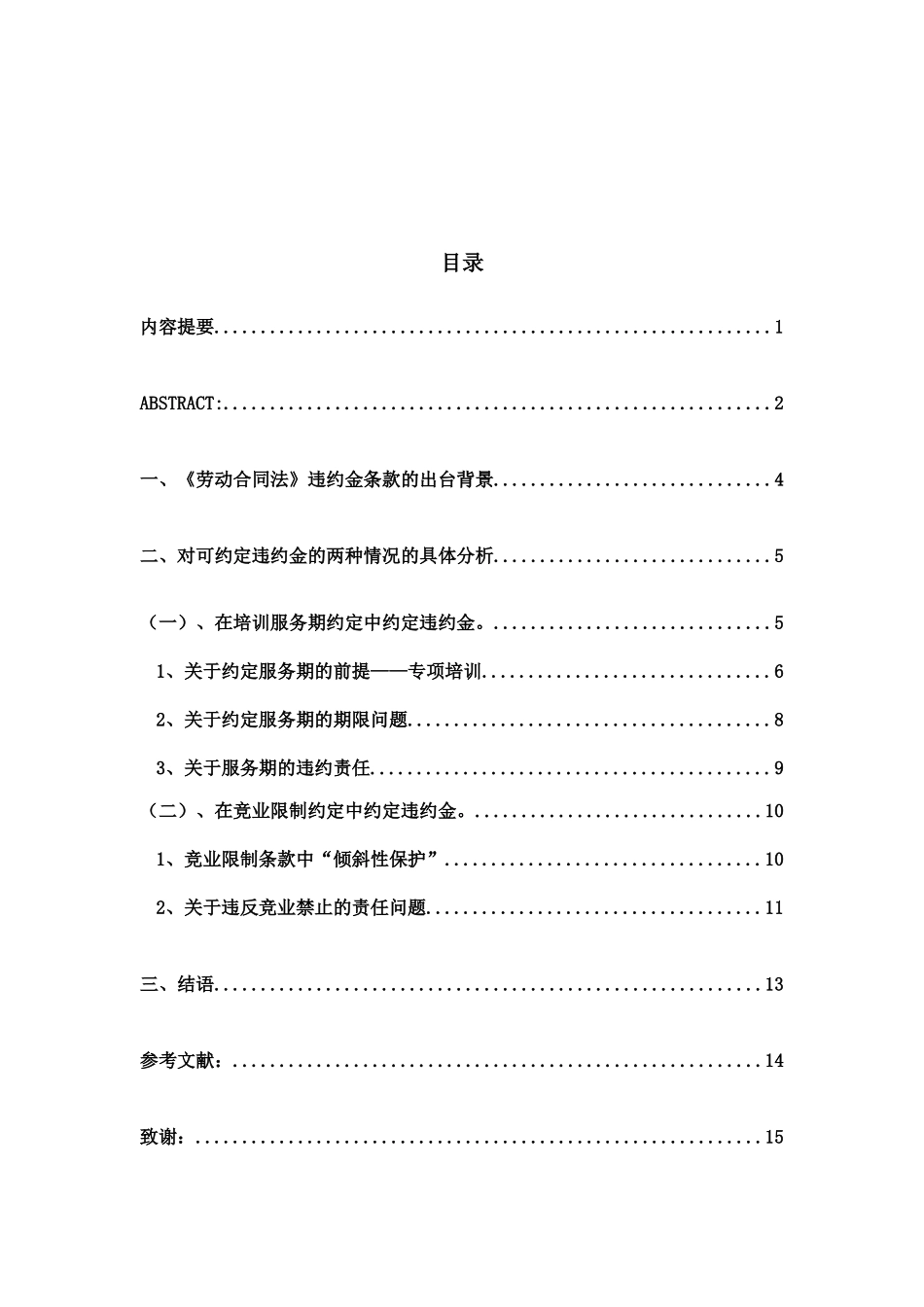内容提要一直以来,在我国劳动合同实践中, 违约金的设定和支付是一个争议较大的问题, 主要由于我国《劳动法》没有对这一问题作出明确规定。 而用人单位往往利用这一法律漏洞,设定高额违约金以限制劳动者的择业自由,从而引发了诸多不和谐的劳动争议案件。从提出到实施历时三年之久的《劳动合同法》,关于其立法宗旨等问题从草案(一审)到四次审议中一直饱受争议,直至今年一月才正式实施。新法以保护劳动者合法权益、促进和谐稳定劳动关系为宗旨, 明确规定了劳动合同只有在因专项培训约定服务期的和因商业机密约定竞业限制的这两种情况下可以约定违约金,在防止用人单位滥用违约金条款、保护劳动者自主择业权等方面起到重要作用。但新法在一些细节问题上尚未明确,又无可借鉴的判例,导致在具体个案中的适用存在一些争议,往往依赖于法官的自由裁量,亟待相关司法解释和地方性法规进行完善。关键词:违约 服务期 竞业限制 倾斜保护Abstract: Since there’s no provision about the stipulation and payment of the default penalty in our country’s "Labor law" , it always causes dispute in the implementation of labor contracts. The employer often makes use of this legislation leak to stipulate high quota penalty ,which can limit the employees’ freedom to choose job .This phenomena is one important reason for the huge sum of labor dispute cases.It lasted three years from the statement of Labor Contract Law to its validity because of the controversy about its legislative objective and other dispute which existed from the first trial to last trial of this law . Ultimately , Labor Contract Law officially implements from January of this year .Its aim is to protect the employees’ legitimate rights and interests and to safeguard the harmonious labor relations .This law set that the default penalty can be stipulated in the labor contract because of the special training which stipulates a service term and the competition restriction for the commercial secret. Therefor , it...


